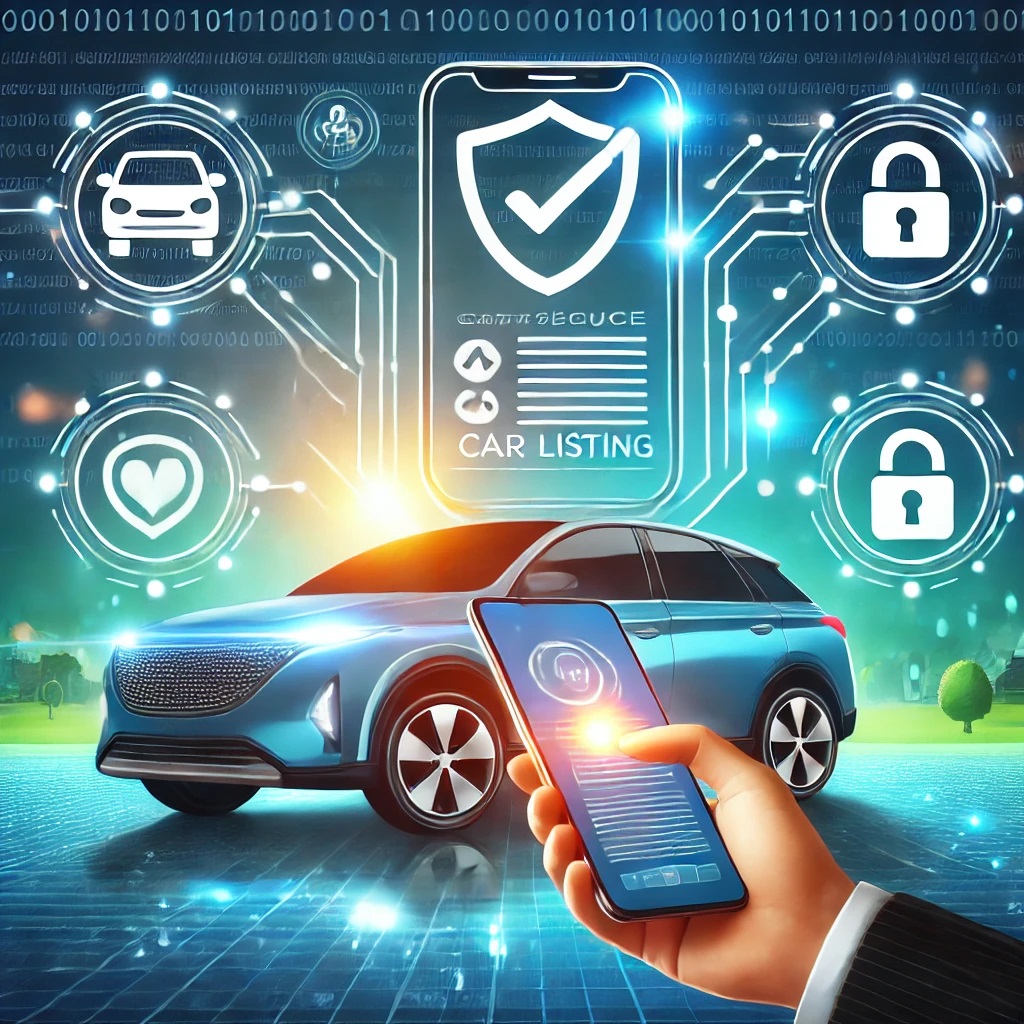Best Tips to Sell Your Car Online Safely.
Selling your car online is a convenient way to get a good price for your vehicle. However, it’s important to be aware of the risks, including online scams and fraud. In this guide, we’ll show you how to sell your car safely, protect your personal information, and ensure you get a fair deal.

1. Be Wary of Scams in Online Car Sales
One of the most common risks when selling your car online is falling victim to scams. These scams typically involve fraudulent buyers who will try to deceive you into handing over your car or money. Some red flags to watch for include:
- Suspicious Emails and Text Messages: Be cautious of unsolicited messages asking for your personal details or offering to pay a higher price for your vehicle.
- Fake Offers: Scammers may attempt to send fake payment confirmation emails or trick you into paying a fee for shipping.
2. Secure Payment Methods for Car Sellers
To avoid being scammed and Sell Your Car Online Safely , always opt for secure payment methods. Avoid escrow services and wire transfers, as they are commonly used in fraud schemes. The safest methods include:
- Bank Transfer: Request payment via bank transfer, which provides proof of payment and ensures the transaction is secure.
- Cash: If possible, accept cash for a face-to-face transaction.
- Verified Platforms: Use trusted platforms that offer payment protection, such as PayPal, but always double-check the sender’s email to avoid phishing scams.
3. How to Spot Phishing and Fraudulent Emails
Phishing scams are a major risk when selling a car online. Phishing emails are designed to look like they’re from a legitimate source but are actually used to steal your personal information. Here’s how to protect yourself:
- Don’t Click on Links or Open Attachments: Never click on links or open attachments from unfamiliar sources.
- Look for Red Flags: If an email contains grammatical errors, urgent requests, or offers that sound too good to be true, delete it immediately.
- Verify the Sender: Always verify the email address and contact details before engaging with the message.
4. Get a Vehicle History Report and PPSR Check
Before finalizing a sale, ensure you’re dealing with a legitimate buyer. One of the best ways to protect yourself is by getting a Personal Property Securities Register (PPSR) check. This will provide information on:
- Whether the car has any outstanding debts
- If it’s been written off or reported stolen
- If it’s free from any legal claims or security interests
Use a trusted service like Drive’s PPSR check to safeguard against unexpected risks.
5. Always Meet in Person in a Safe Location
If possible, arrange to meet the buyer in person. Always meet in a safe, public location (such as a shopping center or police station). Avoid meeting at your home, as this could compromise your personal security.
- Take a Friend or Family Member: It’s always a good idea to have someone accompany you during the meeting.
- Verify Buyer’s ID: Ask for identification from the buyer and take down their contact details.
6. Don’t Share Personal Information Too Early
Keep your personal information safe when dealing with potential buyers. Don’t give out your home address, bank account details, or other private information until you are sure of the buyer’s legitimacy.
- Request a Phone Call: It’s always better to speak directly with the buyer over the phone to gauge their trustworthiness.
7. Ensure You Have Relevant Documentation
Make sure you have all the necessary paperwork ready for the sale. This includes:
- Vehicle Registration: Ensure the car’s registration is current.
- Service Records: Have the vehicle’s service history ready to reassure the buyer of its condition.
- PPSR Report: If you have a PPSR report, share it with the buyer to confirm the vehicle’s history.
How to Protect Yourself From Fraudulent Car Sales
Whether you’re buying or selling, always be cautious when engaging in online transactions. Here are additional tips to avoid car-selling fraud:
- Research the Value of Your Car: Use Drive’s free car valuation tool to ensure you’re asking a fair price for your vehicle.
- Check for Suspicious Buyers: If a buyer refuses to meet in person or insists on payment methods that are difficult to trace, consider walking away.
- Report Scams: If you suspect you’ve been scammed, contact the ACCC’s Scamwatch or report the issue through IDCare for support.
You can list your car for sale on Aus Carsales. It’s Free.
Conclusion
Selling your car online can be a convenient way to reach a broad audience, but it’s crucial to take precautions to avoid scams and protect your personal information. By following these expert tips, you can confidently sell your vehicle while minimizing the risks involved.
Frequently Asked Questions (FAQ)
- What should I do if I receive a suspicious email from a potential buyer?
- If you receive a suspicious email, don’t respond or click on any links. Report the email and delete it immediately.
- How can I verify if a buyer is legitimate?
- Always speak with the buyer on the phone and meet in a public place. Be cautious of any buyer who refuses to meet in person or insists on unusual payment methods.
- What are the best payment methods for selling my car safely?
- Opt for secure payments such as bank transfers or cash. Avoid using escrow services or wire transfers.



